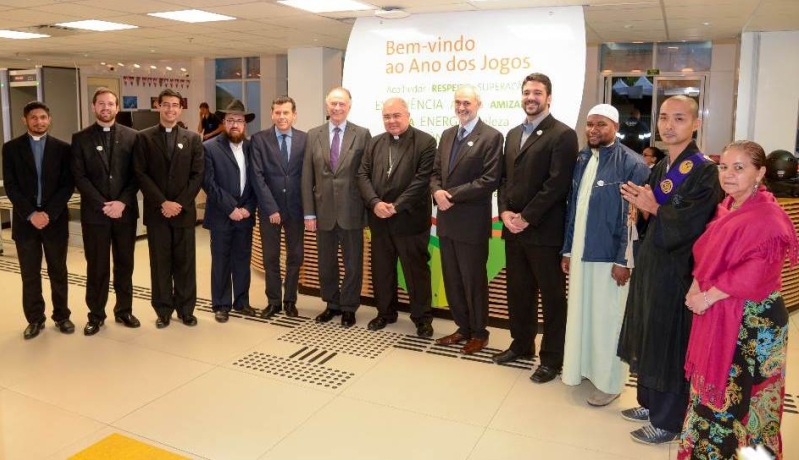
Diverse spiritual needs for the world's athletes competing in Rio de Janeiro, Brazil, are being met through a new "interreligious center" at the 2016 Olympic and Paralympic Village between now and Sept. 21. Representatives from a variety of faiths offer Christianity, Islam, Judaism, Hinduism and Buddhism.
"It's really good to see Rio de Janeiro as a welcoming place where religions understand each other," said cardinal Dom Orani Tempesta, archbishop of Rio de Janeiro.
Chosen religions for the center were based on the faith composition of the athletes slated to compete in the Olympic Games, according to the Rio 2016 website. Each of the five religious traditions has a permanent worship space that can accommodate up to 50 people, with four Catholic chaplains and four Protestant chaplains serving at the center; the other faith traditions also have four representatives each.
"Our job is to provide athletes with a place where they can find comfort and spiritual peace, whatever their religion," Father Leandro Lenin, a Catholic priest who is coordinating the effort, said in a statement and the Deseret News. "We are a symbol of peace, brotherhood and the unity of peoples."
The center also offers opportunities for group worship as well as individual counseling, Catholic News Service reported.
Lenin said each individual working at the center is well-versed in interreligious dialogue, and will be able to help people connect with the appropriate individuals who can help build their faith. "We all believe in dialogue and brotherhood between religions. Our mission is to provide athletes in the village with whatever spiritual assistance they may need," he said.
Organizers have been integrating different languages into the process, too. Masses, for example, are being held in English, Portuguese and Spanish each day, and other languages are represented among the faith leaders and chaplains.
Christian chaplain Carl Dambman said spiritual leaders are at the Olympics to advise and encourage people. "We have Bible studies, we have prayer time, or we just give them a quiet place to be with themselves."
"As the Olympic Games are a secular sports event, it is interesting that different religions also open their doors to the volunteers," said Dom Orani Tempesta.
Among the attendees, Rabbi Elia Haber, Buddhist monk Jyun Sho Yoshikawa, Muslim theologist Jihad Hammadeh and Raga Bhumi Devi Dasi, pioneer of the Hare Krishna movement in Brazil.
"We hope to offer a balance between the physical and the spiritual," said Rabbi Elia Haber, who is also involved in the project. "It is really important for the athletes to work on that."
"The athlete not only needs to have someone who he can celebrate with at the moment he wins, but he also needs a friend's shoulder when he realizes something didn't go as expected," said priest Leandro Lenin. "The centre is not only a place where you find support. It's also a meeting spot where people can find help and assistance."







